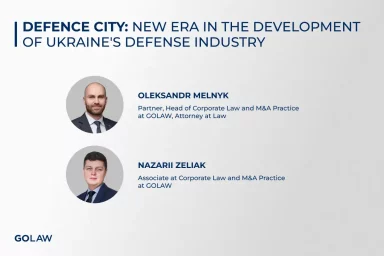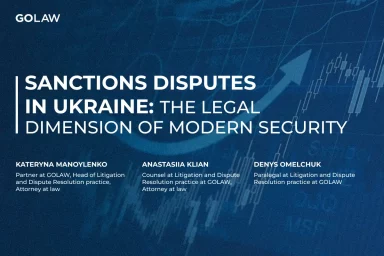Corporate PPA’s: a modern alternative to the “GREEN” tariffs
Contents
Corporate PPAs (Power Purchase Agreements) are gaining popularity not only worldwide, but also in Ukraine. These are direct contracts under which electricity from renewable sources is sold not to the government, as was the case under the “green” tariff, but directly to private companies – end consumers.
EU countries and the US have been moving away from government subsidies for renewable energy in favor of market mechanisms for a while now. According to BloombergNEF, 183 corporate PPAs were signed in the US in 2024 alone – nearly twice as many as the previous year.
For Ukraine, this model is especially relevant given that the “green” tariff is only valid until 2030 and no longer applies to new industrial facilities (except in a few cases explicitly set out by law). It’s also becoming more attractive due to the ongoing financial instability in the energy sector.
Benefits of PPAs in the Ukrainian Context
Corporate PPAs primarily provide predictability and stability. These contracts are typically signed for 10 to 20 years and lock in the electricity price, helping businesses avoid market fluctuations.
Beyond price stability, long-term PPAs also ensure a reliable power supply – a crucial factor given Ukraine’s recent energy challenges, especially after years of widespread blackouts.
PPAs also serve as confirmation of a project’s financial viability, which is key for banks and investors when deciding on funding.
For businesses committed to sustainability, PPAs help reduce CO₂ emissions, improve ESG ratings, and enhance corporate reputation. On top of that, they open the door to instruments like guarantees of origin and carbon credits – and that’s just the beginning.
Regulatory framework: is it already working?
Law No. 3220-IX has enabled renewable energy producers to enter into bilateral agreements without mandatory auctions. Regulatory restrictions on the term of such agreements have also been lifted, allowing long-term contracts to be signed even at the project development stage. Producers can leave the Guaranteed Buyer balancing group and operate on the open market, while retaining the right to return to the state model.
Therefore, the legal landscape is already in place – all that remains is to use it effectively.
ESG, guarantees of origin, carbon credits – how does this relate to PPAs?
Guarantees of origin are electronic documents that officially confirm electricity was generated from renewable sources. This mechanism is already in place in Ukraine and is essential for access to EU markets.
ESG principles refer to a business’s responsibility in environmental, social and governance matters. Investors and partners are increasingly demanding compliance with these standards – and purchasing electricity from renewable energy sources through PPAs is a concrete way to confirm your environmental friendliness.
Carbon credits or emissions trading system – a system in which companies receive CO₂ emission limits: surpluses can be sold, shortages can be purchased. From 2025, Ukraine will reinstate the obligation to report emissions, and the launch of the emissions trading system itself is expected in 2028.
Accordingly, entering into PPAs with renewable energy producers allows businesses to meet ESG requirements, obtain guarantees of origin, and prepare for new climate regulatory requirements.
Practical aspects of concluding a PPA
After considering the general principles of corporate PPAs, it is worth moving on to the the practicalities of putting them into action. First of all, this concerns the terms and conditions of the sale and purchase of electricity, which must be clearly regulated in the contract.
If the electricity seller operates under the PPA model, it is important to stipulate in the contract the buyer’s obligation to purchase the entire volume of electricity produced, except for that consumed for the station’s own needs. The actual conclusion of the contract for a specific trading day is confirmed by the synchronous submission of identical daily volumes of electricity through the electronic platform of the transmission system operator – NPC Ukrenergo. In this regard, the contract must provide for an agreed procedure for coordinating the daily supply schedule, specifying the deadlines, responsible persons and methods of communication.
Equally important is defining the moment when ownership of the electricity is transferred. In Ukrainian practice, this usually happens when the transmission system operator confirms the registration of the contract. From this moment, all risks associated with the ownership, use and disposal of electricity, as well as responsibility for compliance with market rules, are transferred to the buyer.
Pricing within the PPA is one of the most sensitive issues. Usually, a model based on the day-ahead market is used, with simultaneous determination of price limits – minimum and maximum. This allows maintaining a balance between protecting the interests of the parties and flexibility in market conditions. The contract should also clearly outline the timing and procedure for payments, in line with tax law requirements.
Given the long-term nature of PPAs, it is worth providing for the seller’s right to temporarily suspend electricity supply in the event of a breach of payment discipline, failures in volume registration or default by the buyer. The conditions for such suspension must be clearly spelled out and agreed upon by the parties in advance.
The contract separately regulates both planned and emergency maintenance – including notification procedures, shutdown schedules, and deadlines for resolving technical issues. This helps avoid disputes and interruptions at the energy facility.
The parties must hold all licenses, agreements, and technical documents required under the Electricity Market Rules. It is also necessary to provide for the seller’s right to suspend electricity supply in the event of disruptions in the transmission or distribution system, including during maintenance, without applying sanctions. Particular attention should be paid to regulating liability for imbalances – the financial consequences of deviations between the forecast and actual volume of electricity supply. Moreover, the issue of regulating imbalances is an essential condition of the contract.
There are also specific points to consider around the contract duration. It all depends on the stage of project implementation. While the agreement is formally in force from the date of signing, actual electricity delivery usually begins only once the facility has been commissioned for commercial operation – that is, once all technical conditions have been met and supply can physically take place.
Altogether, these provisions form the backbone of a well-functioning and predictable corporate PPA.
Challenges and solutions
Despite its benefits, the PPA market in Ukraine still faces a number of challenges. The biggest issue is the lack of a guaranteed long-term buyer (offtaker) willing to purchase large volumes of electricity. Green auctions have not been implemented at scale, and the private PPA market is developing slowly due to a shortage of creditworthy buyers.
In particular, green auctions with state support do not enjoy investor confidence, due to both procedural imperfections and the risk of non-fulfilment of obligations on the part of the state. The current “contract for difference” model used in green auctions is unattractive to investors, as auction prices are often lower than market prices. The “contract for difference” mechanism provides that the state guarantees a fixed price to the producer, compensating for the difference in the event of a market decline. A transition to a “market premium” model is being discussed, where the producer sells the electricity itself and the state only pays extra when prices are low. Let us turn our attention to quotas. Investors working in Ukraine have much larger construction projects than the quotas currently offered in auctions. This significantly reduces the possibility for large projects to win.
Conclusion
Corporate PPAs are not just a trend, but a real tool for transitioning to a sustainable, competitive and energy-independent economy. They open up new opportunities for both energy producers and consumers, allowing them to combine economic efficiency with social and environmental responsibility.
A well-structured agreement, supported by professional guidance, is the key to making the most of this instrument in the Ukrainian context.

Oleksandr Melnyk
Partner, Head of Corporate Law and M&A practice, Attorney at law
- Contacts
- 31/33 Kniaziv Ostrozkykh St, Zorianyi Business Center, Kyiv, Ukraine, 01010
- o.melnyk@golaw.ua
- +38 044 581 1220
- Recognitions
- The Legal 500 2024
- IFLR1000 2024 (International Financial Law Review)
- Legal 500 Green Guide 2024
- TOP-50 Law Firms of Ukraine Ranking | YURPRAKTYKA

Khrystyna Zimenko
Associate
- Contacts
- 31/33 Kniaziv Ostrozkykh St, Zorianyi Business Center, Kyiv, Ukraine, 01010
- k.zimenko@golaw.ua
- +38 044 581 1220
Get in touch
To get a consultation, please fill out the form below or call us right away:Sign up to be aware
New achievements are inspired by information. GO further, don’t miss out GOLAW news and legal alerts
Our expertise
-
- Energy and Natural Resources
- Antitrust and Competition
- Banking and Finance
- Compliance, Corporate Governance and Risk Management
- Corporate and M&A
- Criminal and White Collar Defence
- Defense in Anti-corruption procedures and regulations
- Labor and Employment
- Natural Resources and Environment
- Government Relations (GR)
- Insolvency and Corporate Recovery
- Intellectual property
- International trade
- Legal support of business and private Сlients in Germany
- Litigation and dispute resolution
- Private clients
- Real Estate and Construction
- Restructuring, Claims and Recoveries
- Martial Law
- Tax and Customs
-
- Agribusiness
- Aviation
- Chemical industry
- Engineering, Construction and Building Materials
- Natural Resources and Environment
- Financial institutions
- IT and AI
- Industry and manufacturing
- Healthcare industries, Life sciences and Pharmaceuticals
- Media, Entertainment, Sports and Gambling
- Retail, FMCG and E-Commerce
- Transport and Logistics
We use cookies to improve performance of our website and your user experience.
Cookies policy
Cookies settings







